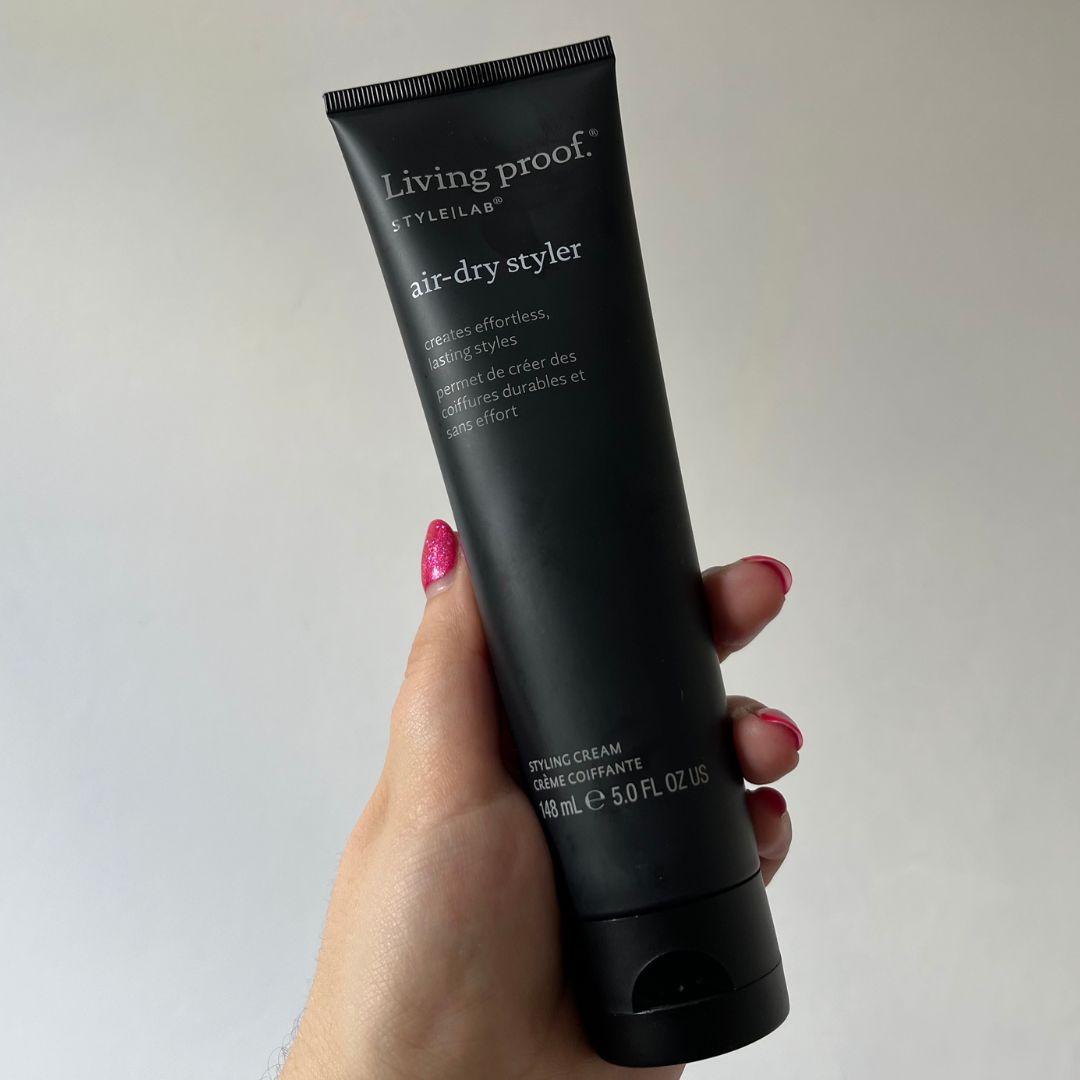Three eating disorder specialists on why the viral "heroin chic" article is so harmful
Plus share what more we can do to prevent these narratives from being promoted.

A now viral New York Post article has been slammed this week for glorifying eating disorders and promoting unhealthy body image.
Trigger warning: discusses themes of eating disorders, drug addiction, and body dysmorphia.
The article claimed that "heroin chic" is back - a style popularised in the '90s that glamorised the low weight, stringy hair, and pale complexion often associated with drug use.
It was Tweeted on Wednesday morning to the official New York Post account, and read: "Bye bye booty: Heroin chic is back."
Within the article, they discuss how the “thin, heroin-chic body” of the '90's is “making a comeback," ditching the “slim thick” body type and strong not skinny mentality that's been championed in recent years.
It read: “Even the famously bootylicious Kardashians seem to be turning away from curvy physiques. Kim and Khloé are looking increasingly skinny of late, leading fans to speculate that they’ve reversed their Brazilian butt lifts — though it has never been confirmed either had the procedure to begin with.”
Why the viral "heroin chic" article is so harmful, according to three specialists
Yet, understandably, the article has faced fierce backlash, with actress and presenter Jameela Jamil posting on Instagram: “No. No. F**k this."
Marie Claire Newsletter
Celebrity news, beauty, fashion advice, and fascinating features, delivered straight to your inbox!
"We are not going back, and how dare the media give this b*llshit any oxygen?! I am of the generation of the first wave of this. We never fully recovered. I lost two decades of my life."
“I’m BEGGING you to violently reject this... We worked so hard and made so much progress and we are not being dragged back.”
A post shared by Jameela Jamil (@jameelajamil)
A photo posted by on
She has been opening about her own eating disorder in the past. But she's not alone - hundreds of people, including eating disorder specialists, survivors, and more, have taken to social media to point out one important notion: that bodies are not trends, and articles as such reinforce that we should sacrifice our health to look a certain way.
So why is the article so damaging? Well, as Kerrie Jones, a leading eating disorder psychotherapist and founder of Orri (www.orri-uk.com), a Specialist Day Treatment Service for Eating Disorders, points out, it's highly damaging as it reinforces the notion that women can (and should) change how we look as and when celebrities dictate it - with no regard for our actual health.
Bye bye booty: Heroin chic is back https://t.co/D5yTMWQfWh pic.twitter.com/a7r4a6RzGvNovember 2, 2022
"The problem with trends such as these is that they are inconsistent, transient, and arbitrary," explains psychotherapist Jordan Vyas-Lee. In other words, they're nonsensical - they'll change with the seasons and leave you back to square one.
This is where the issues arise - where women are subconsciously encouraged to adopt fad diets in order to change how they look. "If you don't see yourself fitting in, you may turn the blame inwards or engage in unhealthy and dangerous behaviours in order to fit the narrative."
Body image problems are one of the strongest risk factors for the development of an eating disorder - and as Jones points out, this unrealistic and pressured media showcase only promotes these. "Bodies, and particularly women’s bodies, have dominated headlines for decades, with the media assigning a magnified value to them," she shares. "From a young age, we are told messages and beliefs about our bodies that go on to become a narrative for how we see the world, ourselves, and our bodies, within it."
Young people in particular can have a very binary view of the world - they can think how they look defines their worth. This isn't the truth, but no matter our age, we can all struggle to see what’s real and what's manipulated.
Similarly, as clinical psychologist and founder of Kove, Dr. Jenna Vyas-Lee, explains, the message that there are "fashionable" body types can put enormous - and completely unrealistic - pressure on people to look a certain way. This can lead to anxiety symptoms, eating disorders, body dysmorphia and more.
Using women's body types as a way to discuss fashion trends is at best lazy journalism and at worst extremely damaging to women's mental health.
Several studies, including a 2016 paper published in the Body Image journal and a 2018 study published in Acad Psychiatry, found that the media plays a critical role in building and promoting an "ideal" body shape - which is why it's so critical we keep reinforcing the truth that every single body is different, will look different, and will respond differently to different food groups, stress levels, and so on.
"Articles such as the New York Post one can encourage you to evaluate yourself based upon external factors," shares Dr. Vyas-Lee. "For some, it'll really encourage them to derive their self-worth exclusively from their aesthetic appearance, body shape, and weight."
Which, of course, isn't the case. Our self-worth is rooted in so much more than that - kindness, abilities, accomplishments, and much more.
Not to mention how damaging it is for those currently suffering from drug addiction - "who normally have an extensive history of trauma," shares Dr. Vyas-Lee. "The notion of drug addiction as a lifestyle choice is invalidating and retraumatising to the seriousness of the acute psychological disorder," they go on.
Others were quick to point out how insensitive the article is given the current cost of living crisis, which is leaving many families globally struggling to afford food.
While diet fads will never go away entirely, here at Marie Claire UK we're constantly encouraging you to build a healthy routine that genuinely works for you and your body. No fads, no quick fixes, and no changing for other people. Why? Because you deserve to be at peace with your own body.
So, what next?
How do we stop these narratives from being promoted? Well, as Vyas-Lee says, the media has a responsibility to publish with sensitivity. "Trends will exist, but we must encourage dialogue and avoid glamourising or glorifying unhealthy behaviours that can take years to untangle. In fact, the media has an opportunity here to provide tools for health promotion and prevention strategies."
Here's to continuing to work towards a society where women aren't pressured to look a certain way because the media deems it a "trend."

Ally Head is Marie Claire UK's Senior Health and Sustainability Editor, nine-time marathoner, and Boston Qualifying runner. Day-to-day, she heads up all strategy for her pillars, working across commissioning, features, and e-commerce, reporting on the latest health updates, writing the must-read wellness content, and rounding up the genuinely sustainable and squat-proof gym leggings worth *adding to basket*. She also spearheads the brand's annual Women in Sport covers, interviewing and shooting the likes of Mary Earps, Millie Bright, Daryll Neita, and Lavaia Nielsen. She's won a BSME for her sustainability work, regularly hosts panels and presents for events like the Sustainability Awards, and is a stickler for a strong stat, too, seeing over nine million total impressions on the January 2023 Wellness Issue she oversaw. Follow Ally on Instagram for more or get in touch.
-
 Jonathan Anderson is going to Dior Men
Jonathan Anderson is going to Dior MenHis debut collection will be this June
By Mischa Anouk Smith
-
 I'm a 2025 bride and these are the best affordable wedding dresses I've found
I'm a 2025 bride and these are the best affordable wedding dresses I've foundLess than £1,000 but still the height of chic
By Sofia Piza
-
 I haven't worn my hair completely natural for years, but this air-dry styling cream has made me love my waves again
I haven't worn my hair completely natural for years, but this air-dry styling cream has made me love my waves againI will never be without this
By Amelia Yeomans